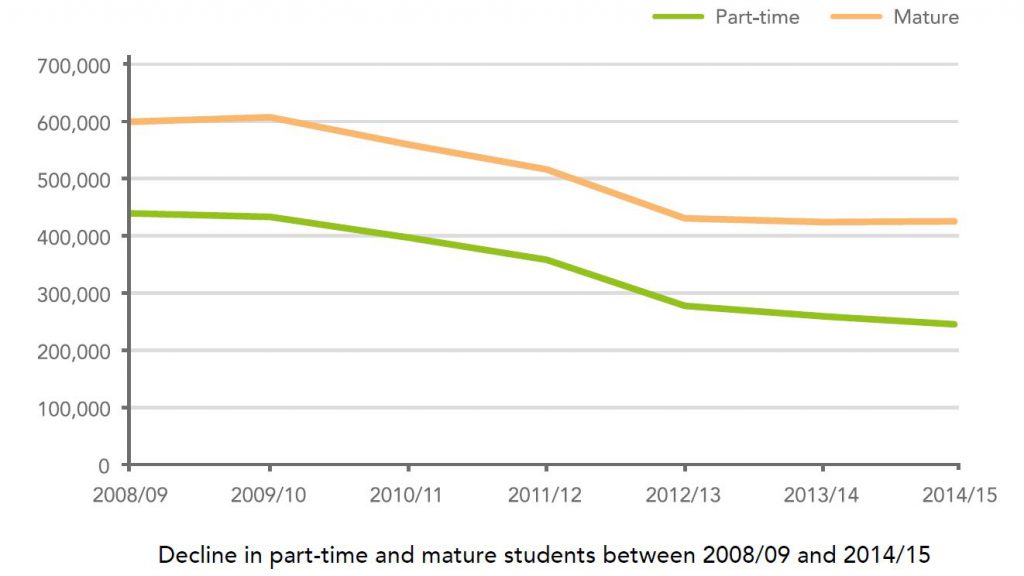Our report Lifelong Learning: Ladder and Lifeline makes recommendations on how to make lifelong learning a reality so that people can benefit from education and training throughout their lives.
The Government’s recent Industrial Strategy Green Paper identified the need for ‘ambitious new approaches’ to enable lifelong learning. Our report shines a spotlight on how Alliance institutions are achieving this, bringing benefits to both individuals and the country as a whole.
Why is lifelong learning important?
The Office for National Statistics projects that in the UK, 30% of people will be aged over 60 by 2039, up from 23% in 2015. In the same year, one in twelve of the population will be aged 80 or over. This means future working lives will be longer.

To create an economy focused on high-skilled jobs in a world of fast-paced change, people already in work must have the opportunity to retrain multiple times throughout their long careers. Universities are well placed to facilitate this, and our report examines how we can build on existing best practice, including The Open University’s PEARL online advice and guidance tool.
What are the current challenges?
Lifelong Learning: Ladder and Lifeline responds to the drastic fall in the number of part-time and mature students – since 2008/09, the number of part-time students has fallen by 44%, while the number of mature students has fallen by 29%.

Serious coordinated effort is required to make lifelong learning a reality. Our report makes several recommendations to do so, including:
- Creating a centralised UCAS-style system for lifelong learning courses
- Re-introducing Individual Learning Accounts and more flexible systems of funding to allow universities to offer accelerated degrees
- Broadening the Apprenticeship Levy to cover a wider range of lifelong learning courses, giving employers greater flexibility
You can read our full report and university case studies here.



